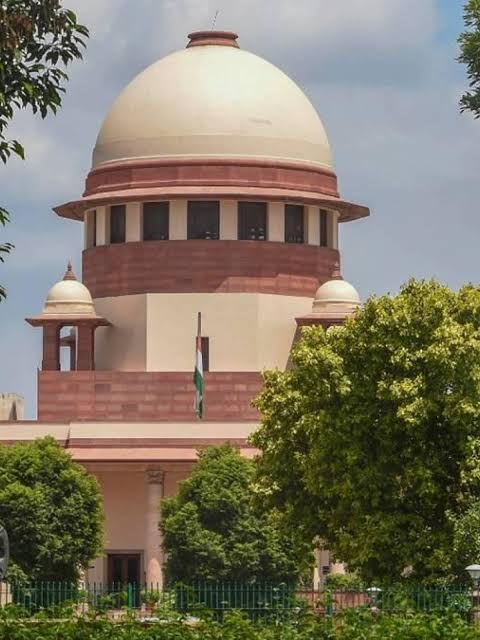


In an unprecedented move, the Uttarakhand government has introduced a bill in the State assembly to govern live-in relationships.Significantly, the draft Uniform Civil Code (UCC) Bill seeks to penalise persons who do not register their live-in relationships with a prison term. The proposed legislation also deals with other aspects such as marriage, divorce and inheritance in Uttarakhand.The Bill was introduced by Chief Minister Pushkar Singh Dhami, who said on X,“With the aim of giving equal rights to the citizens of Devbhoomi Uttarakhand, a Uniform Civil Code bill will be introduced in the Assembly today. It is a moment of pride for all the people of the state that we will be known as the first state in the country to move towards implementing UCC (sic).”
विधानसà¤à¤¾ में à¤à¤¤à¤¿à¤¹à¤¾à¤¸à¤¿à¤• "समान नागरिक संहिता विधेयक" पेश किया। #UCCInUttarakhand pic.twitter.com/uJS1abmeo7
— Pushkar Singh Dhami (@pushkardhami) February 6, 2024
The UCC Uttarakhand is the result of deliberations by a five-member panel headed by former Supreme Court judge Justice Ranjana Prakash Desai. The committee had handed over the UCC final report to Dhami on February 2.With a view to bringing the various facets of civil life under a single law, the UCC lays out what is permissible and what is prohibited in relationships across faiths, subject to personal customary laws.Law governing live-in relationshipsThose wanting to reside as partners in live-in relationships in Uttarakhand will now have to register their unions by giving a statement to the Registrar, who may or may not grant the registration if the relationship flouts any of the conditions enlisted in the UCC. A live-in relationship will not be registered if the partners fall under the “prohibited relationships” category. The UCC has given a list of relationships that fall under the prohibited category. Crucially, such prohibitions will not apply to persons whose customs permit the relationship, provided that such customs are "not against public policy or morality".A live-in relationship has been defined in the Code as a relationship between “a man and woman” living in the same household in the nature of marriage.
UCC live in
Upon receiving a statement of the persons intending to enter into a live-in relationship, the Registrar will conduct an inquiry and take a decision on registration within 30 days of receiving the couple's statement.
According to Section 385 of the draft Bill, a statement submitted to the Registrar will be forwarded to the officer-in charge of the local police station for maintaining records.
In case either of the partners is less than 21 years of age, this fact has to be informed to their parents or guardians, it adds.
Can couples be jailed?
Yes, if those seeking to live together don’t inform the authorities and submit their statement, they will be served a notice, following which criminal prosecution can be initiated against them.
The UCC Bill lists out three categories of punishments in case couples do not comply with the law.
In the first scenario, if they have spent a month without submitting a statement, they can face a jail term of upto three months or a maximum fine of ₹10,000, or both.
Any false statement by the couple can attract the same jail term, but a higher fine amount of ₹25,000, or both.
Upon being issued a notice by the Registrar, if a partner does not submit the statement of the live-in relationship, they may face six months in jail and/or fine of ₹25,000.For Advocate Utkarsh Singh, who has represented such couples in court cases, the Code seems like a step forward and two steps backwards."The entire purpose of a live-in relationship is to explore living with another person without any statutory obligation. The idea of getting it registered will only deter the consentingindividuals for any partnership and envisaging of penalties and punishment under the Code will not only discourage consenting individuals but it is also anathema to free volition," he says.With the introduction of this Bill, the debate over whether a Uniform Civil Code should be applied across the country has once again assumed significance.
Last year, the 22nd Law Commission had sought views and suggestions from the public, recognised religious organisations and other stakeholders on the UCC.
Responding to the same, Senior Advocate and DMK Rajya Sabha MP P Wilson wrote to the Commission saying that the UCC could wipe away the unique traditions and cultures of minorities and was a “risk to secularism”.
Similarly, Jamiat Ulama-i-Hind argued that rights of individuals and religious denominations under Articles 25 and 26 of the Indian Constitution will be affected if the UCC were to be implemented.
“A mandatory uniform code will be a blanket imposition of one identity on a country whose inhabitants bear diverse identities,” it said.
The Central government, on the other hand, had been in favour of implementing the Code, but said that the subject required an “in-depth study of the provisions of various personal laws” that govern various communities.
And now, Uttarakhand is looking to be the first state to implement an uniform code governing the lives of people. Crucially, the ruling dispensation’s idea seems to be taking shape, one state at a time.
While the State government seems to be fulfilling its promise to the people in the run up to the 2022 assembly polls, the move has faced flak from those who fell that its implementation will “destroy the diversity” of Uttarakhand.
TAGS: Prohibited relationships Criminal prosecution Law Commission Religious organizations